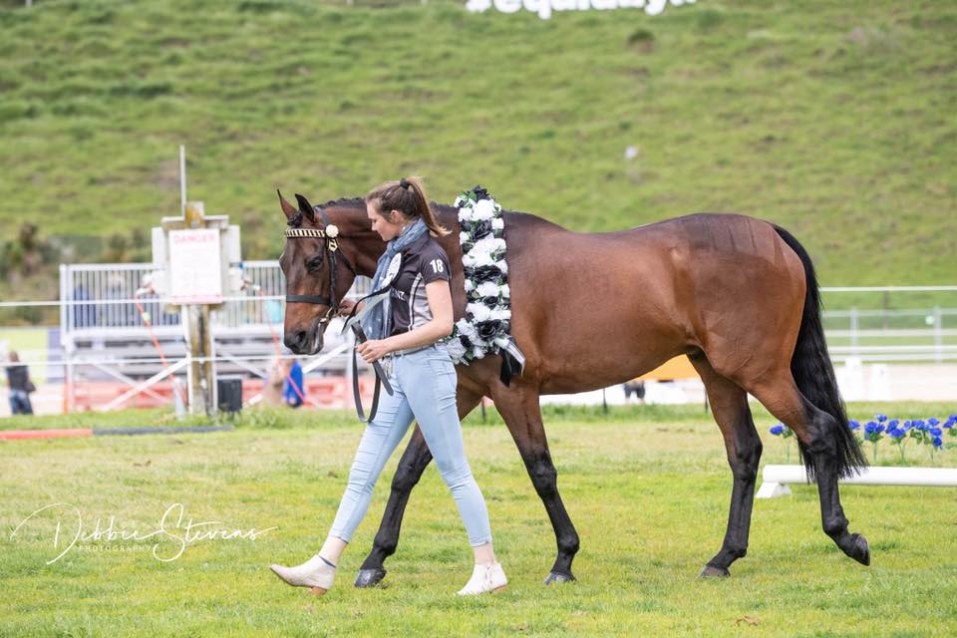
HOW TO ACHIEVE WEIGHT GAIN IN YOUR HORSE
One of the common questions that an Equine Nutritionist is asked is, ‘how do I put weight on my horse?’
If we can assume the horse is in good health, it’s free from worms, its teeth are in good order and it has no underlying health aliments, then it is quite simply a case of the horse consuming more calories, or expending less calories.
Where to start?
Before you can decide on changes to your horse’s supplementary feed programme, you need to assess what is currently being done. This involves the weighing of the current feedstuffs in the horse’s diet. Weigh each ingredient including fibre sources. There are a number of reasons why it is so important to weigh your horse’s feeds:
1) This enables you to provide accurate information if you are seeking assistance with feeding advice from an Equine Nutritionist or Feed Manufacturer.
2) You are able to compare current intakes with a Feed Manufacturer’s feeding guide, as supplied on the bag.
3) You are able to follow some simple feeding rules
e.g No more than 2kg of concentrate should be fed in a single meal
4) It provides a good reference for future feeding regimes with that horse
Providing adequate fibre
For many horses pasture is obviously the main fibre source but it can vary very much in quality and supply depending on seasonality. Therefore, if pasture is limited, a good supply of hay or haylage to supplement this is vital, and for horses that are boxed or yarded this may be their primary fibre source. With this in mind it is important to remember that horses require a minimum of 1% of their body weight in hay/chaff or pasture daily (on a Dry Matter basis).
Therefore the first action point if horses are underweight is to provide additional fibre, this may just be a case of providing an extra biscuit or two of hay daily.
Adequate fibre is imperative for optimum digestive health, however fibre sources are not as calorie -dense as many other supplementary feed stuffs, with the exception of “super fibres” including sugarbeet pulp products, (Dunstan Sugarbeet Flakes and Dunstan Betabeet Flakes). Super Fibres are unique in that they have a similar calorie level as some cereal grains, but as a fibre source they optimise equine digestive health. Therefore beet products are a great way to boost both your horse’s daily calorie and fibre intake.
Supplementing additional calories
As the majority of fibre sources are not very calorie-dense, some horses on forage-only diets struggle to maintain body condition, especially those with increased energy demands. As a result, additional calorie sources are required. This can be done through the inclusion of straight cereal grains (oats, corn, and barley), cereal grain by-products or using a ‘pre-mixed’ feed.
Pre-mixed feeds are formulated by Feed Manufacturers to provide a fully balanced feed with vitamins and minerals included. If feeding straight grains it will be necessary add vitamins and minerals.
1. When formulating a premixed feed Equine Nutritionists design the feed around the end user knowing the type of animal which it is being prepared for i.e. a pregnant mare, weanling or a riding horse. It is therefore appropriate that you select the feed that is formulated for your type of horse.
2. Unless you are feeding a ‘concentrated supplement’ most premixed feeds are formulated to be fed at a minimum of 2kg (based on a 500kg bodyweight) daily, higher intakes depending on workload. This will provide a full intake of vitamins and minerals.
3. The cereal grain inclusion in most quality premixed feeds will be ‘processed’ in some way. The heat processing of cereal grains (i.e. extrusion), in particular barley and maize, ensures better feed utilisation and a much safer form in which to feed these grains.
Options for dietary changes
1. If your horse is currently on a pre-mixed feed or grain-based ration and he is still struggling to maintain condition it may be a case of simply increasing the daily intake, (now you’ve weighed your feed you know where to from here, you may be surprised to learn he has just not been getting enough?).
2. The energy level of the feed indicates how fattening it is and therefore it may be appropriate to move to a higher energy feed. This will provide more calories per kg, and assist with weight gain. For example you may move from Dunstan Coolfeed (11.75Mj/Kg) to Dunstan Maxim Low-GI (13.5Mj/Kg) or Dunstan Eezymix (14.5Mj/kg).
3. If you are concerned with giving your horse a ‘higher energy’ feed due to its temperament utilise a low starch feed. Many of these feeds like Dunstan Maxim Low-GI are still calorie dense however as the calories are derived from fats and superfibres they are not ‘heating’ like a traditional grain based feed.
4. Add a calorie-dense supplement. You may be happy with your horses ration and not want to make too many changes. In this situation adding a low intake but calorie-dense supplement would be a great compromise, a product such as Dunstan Muscle ‘n Shine or Dunstan Extruded Rice.
5. Add some oil. Oils are very calorie-dense and are a great for weight gain. In addition, they provide a ‘cool calorie’ source which can be very valuable for ‘hotter’ types that are learning a new vocation. They can be added to the diet without having to increase the quantity of feed being fed, which is very helpful when horses are nearing their maximum meal size of 2kg of hardfeed per feed. Ideally use blended oil such as Dunstan Trifecta Oil, providing a combination of Fatty Acids, Omega 6, 9 and Omega 3.
The options above provide a variety of ways to increase your horse’s daily energy intake and therefore achieve desired weight gains. The option you choose will depend on your horse’s personal preferences, workload, temperament and your current supplementary feed regime.
If you are unsure of the best feeding regime for your horse or would like some assistance in developing a suitable feeding programme please contact Dunstan on 0800 438 678 or dunstan@dunstan.co.nz or Gretel Webber on 021 557 316, Gretel@dunstan.co.nz

